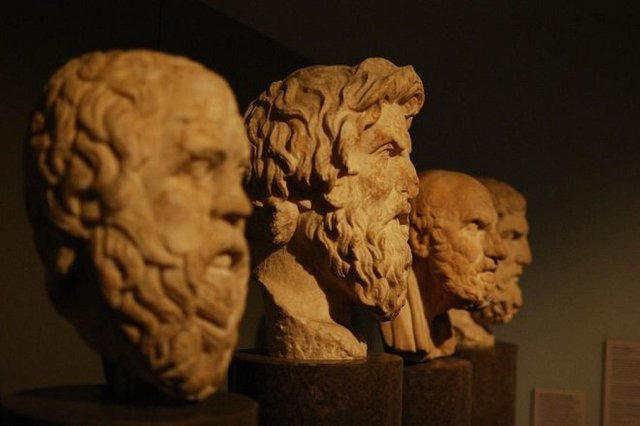If, in this way, the first philosophy, metaphysics is actually transformed by its subject of Theology and received the name "Theology", the other sciences - and above all physics - have as their object the visible material world. If metaphysics tells us the first engines, physics has to talk about the real world movements in more detail. Under movement, the ancient people understood every change in the world. Therefore, Aristotle has four types of movements: Substance, which consists in the origin or disappearance of a certain being as such. Quantitative-quantitative increase and decrease.Quality-change, getting new qualities. Simple spatial movement, consisting of changing your place, going from one place to another.
These types of movements immediately call for basic philosophical problems. For example, according to Aristotle, it can not be speaks of a substantial origin and extinction in an absolute sense, as matter with its changes is eternal. The world is eternal. Consequently, the derivation and disappearance of specific secondary objects is formed. In other words, the very notion of essence / oisia / is no longer a metaphysical general meaning but a physically specific meaning and means the individual things. Also, in a normal movement as a displacement, the question of space is called up. According to Aristotle, space does not exist objectively beyond material things, and it is the determinacy of the objects themselves. So the very expression "movement in space", which awakens the notion of empty space as some kind of space in which we move is incorrect. Also, time does not exist as objectively outside of the changes. Outside of material things, there is no empty space, not even empty space. This Aristotle fully grounded against the Atomist, who was studying for empty space. Time is only the number of movements from the first to the next / last /.
Among the four types of movements, Aristotle considers the latter as the most spatial one, since all other species depend on it, and it is also the most important, since it encompasses the whole world circle. The universe, according to Aristotle, is spherical. It is divided into two halves of the moon: half over the moon and half under the moon. The upper, above the moon part is composed of ether. It is invariable even in its moving part. The lower one - under the moon half - consists of four elements: land, water, air and fire, with their four main strengths or qualities: warm and cold, wet and dry. By virtue of these properties, the constant combination of elements and their constant qualitative change arises, which Aristotle also expressly emphasizes unlike the atomists. Without qualitative change of the elements and their passage to one another, according to him, the development of the quality of things in the world can not be explained. Only the ether, which is the fifth element / quint essentia /, is indivisible.

Ancient figures were amazing. They were so brilliant. I really don't know how did they get all of that knowledge. Many of those ideas still prevail nowadays. DaVinci, Aristotle, Galileo, etc, all of them are being study's objetives by many scintists. Even, many of our scientists presume that all the ideas expresed by ancients, were given by entities like aliens or the holly spirit.
Downvoting a post can decrease pending rewards and make it less visible. Common reasons:
Submit
Wow amazing
Downvoting a post can decrease pending rewards and make it less visible. Common reasons:
Submit